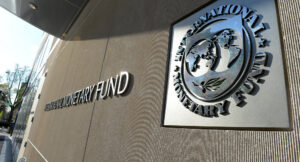Sri Lanka’s economy to contract by 6.7 percent this year
2 min readSri Lanka’s coronavirus battered economy is forecasted to contract by 6.7 percent thus year mostly driven by a significant contraction in industry and service sectors, according to a latest World Bank (WB) report.
“Sri Lanka’s GDP will decline by 6.7 percent, with the crisis affecting all key drivers of demand: exports, private consumption and investment. The current account deficit is expected to remain low thanks to low oil prices and strict import restrictions amid large foreign exchange shortages,” the WB said in its latest South Asia Economic Focus titled ‘Beaten or Broken?’.
In June this year, the WB projected a 3.2 percent contraction in the country’s GDP.
In the latest report, it indicated that the economy recovery in Sri Lanka along with India, Maldives and Nepal has been slow.
“For July and August, the Quarterly Economic Indicators point to a rebound across all countries, but the implied output is still lower than last year in India, Maldives, Nepal, and Sri Lanka,” it noted.
Weighted by the COVID shock in each sector and employment, agriculture (in all countries) and manufacturing in Sri Lanka would contribute the most to the total loss.
As per WB projections, Sri Lanka’s industry sector and service sector outputs are forecasted to decline by 6.1 and 6.3 percent this year, however, agricultural sector’s output is forecasted to grow by one percent.
Meanwhile, the WB expects the government’s debt to rise to 102 percent of GDP this year from 86 percent last year.
The fiscal deficit projected to shoot up to 11.1 percent of GDP this year from 6.8 percent last year.
The WB advised the country to strike a balance between supporting the economy amid COVID-19 and ensuring fiscal sustainability amidst economic fallout and worsening debt dynamics of the country.
“Sri Lanka is also highly exposed to global financial conditions, as the repayment profile of its debt requires the country to access financial markets frequently. A high deficit and rising debt levels could further deteriorate debt dynamics and negatively impact market sentiment. Thus, Sri Lanka will need to strike a balance between supporting the economy amid COVID-19 and ensuring fiscal sustainability,” it said.
The WB expects the country’s economy to rebound by 3.3 percent and 2 percent in 2021 and 2022, respectively.




